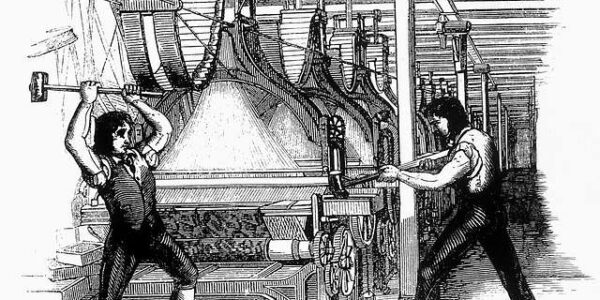With actors and screenwriters on strike, the conversation about robots taking over human jobs is heating up again. One of the complaints from the Hollywood workers is that their jobs are threatened by artificial intelligence. AI is already used to populate crowd scenes, whether it be armies of orcs or cheering crowds in a stadium. Actors’ voices and movements can be captured once and reused — at no additional cost — forever. That’s a way of automating actors through AI.
They’re not happy about that.
It’s essentially the same problem that operating room nurses have. These heroic human workers will tell you that a robot could do a lot of their job: lifting a tray of instruments in the right place at the right time could certainly be automated. Like fry cooks, manicurists, and asparagus pickers, their jobs could be done by robots. They don’t accept that this should happen.
If a job can be automated…
Some jobs can’t (so far) be automated. We don’t want teachers or therapists to be anything but human. Fashion models? Tax accountants? Paralegals? If their jobs can be automated, some would argue, they should be. Nobody is proposing that we should go back to having people dig fields by hand for all our crops. Since machines can plow, we are happy to let them do that. It would seem unreasonable to have a human do that work which can be done just as well by a machine.
Some people will still choose to dig their own gardens by hand, and some people might even be willing to pay for someone to dig their gardens by hand, but it would be perverse to give up the benefits of automated plowing. Arguably, we couldn’t feed as many people that way, and might end up seeing famines if we refused to let machines help out with agriculture.
So how is that different from automating movie extras? Are there some jobs we just shouldn’t automate?
Turning back time
Some people are not saying that any job shouldn’t be automated because of the nature of the job. They just want to call it quits on robots encroaching on human jobs.
Gary Bolles makes the very sensible point that robots aren’t actually doing the encroaching. “The truth is, robots and software don’t take away jobs,” he wrote. “They simply automate tasks; it is ultimately a human’s decision if a job gets taken away.”
But it probably isn’t realistic to expect the average company to pay more for a human being to do a job that could be done more cheaply (and maybe even better) by a machine. We all know that bread made by a skilled human is better than bread churned out by machines. Very few of us take on the extra trouble and expense involved in acquiring artisanal bread on a regular basis. If we won’t do that, either for the good of the bakers or for our own gustatory pleasure, why should we expect corporations to do better than we do?
The Luddites tried to end machines that could knit or weave. We know how that worked out. We probably shouldn’t expect any sentimental pleas — or even strikes — to change the outcome this time, either.
